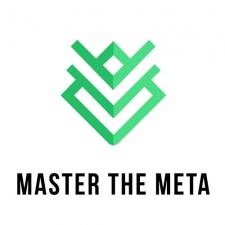Master the Meta is a free newsletter focused on analysing the business strategy of the gaming industry. MTM and PG.biz have partnered on a weekly column to not only bring you industry moving news, but also short analyses on each. To check out this week’s entire meta, visit www.masterthemeta.com!
Tencent turned 2020 into a record investment year with 29 gaming-related deals (so far!). 20 of these deals are China-based companies and nine are international studios. Contrary to public perception, this amount of activity is actually new for Tencent. Since 2005, Tencent has on average invested in less than 10 gaming-related companies annually. Before we get into the analysis regarding such a strategy shift, here’s the investment breakdown for the year:

Tencent’s international PC/Console strategy is fairly straightforward - take an existing PC IP with global appeal, broaden the company’s insights, and often turn it into a mobile game for broad distribution. This is a proven route for Tencent following the playbook of PUBG, League of Legends, and Counter-Strike. We could likely see DayZ Mobile, The Cycle Mobile, and more in the coming years. (We wrote much more about Tencent’s mobile strategy here)
Interestingly, Tencent’s accelerating investment activity primarily revolves around increasing the number of early-stage deals. In the past, most of Tencent’s deals were executed very methodically and focused on industry leaders (like Supercell, Riot Games, and Epic Games). However, 2020’s deals are more focused on early-stage companies, plus niche genres, and were seemingly executed with greater speed. What changed?
One explanation floating around Chinese media points to Genshin Impact. Genshin Impact by Mihoyo not only burst onto the scene and immediately became a global top grossing game, but Mihoyo also completely circumvented Tencent’s ecosystem in China. 90 per cent of ad spend went to Bilibili and Bytedance’s platforms, and players can’t even download the game on Tencent’s Myapp store.
The meteoric rise of smaller, non-Tencent backed studios focusing on niche genres such as Mihoyo (Genshin Impact), Hypergryph (Arknights), and Papergames (Mr Love: Queen’s Choice) reveals that Tencent underestimated part of how the industry would evolve. Papergames (established less than 7 years) and Hypergryph (established less than 2 years) already command a net profit of RMB 1 billion each, with valuations of tens of billions RMB. Mihoyo’s valuation is now estimated to be more than RMB30 billion ($4.6 billion).
Of course, Tencent is doing just fine, and its gaming business still made meaningful progress this year despite being slower to certain trends. It can’t control everything, after all. That said, Tencent now recognizes a new paradigm shift where player growth could come from anywhere, and the company is quickly adapting to ensure future growth from new sources decreasingly passes them by. (written by Owen Soh)
Master the Meta is a newsletter focused on analysing the business strategy of the gaming industry. It is run by Aaron Bush and Abhimanyu Kumar. To receive future editions in your inbox sign up here:





















